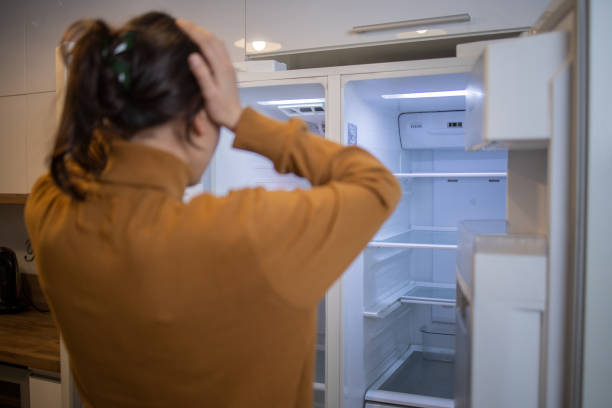
If you own a GE freezer, you may have noticed some clicking noises coming from it. Is this normal or a sign of trouble? How can you troubleshoot and fix the problem? In this blog post, we will answer these questions and more.
A clicking noise from a GE freezer can be normal or abnormal, depending on the source and frequency of the sound. Some common causes of abnormal clicking noises are a faulty start relay, a defective compressor, or a dirty condenser coil. To troubleshoot and fix the problem, you need to identify the source of the noise and replace or clean the affected part.
Some clicking noises from a GE freezer are normal and part of its regular operation. For example:
These noises are not a cause for concern and do not indicate a malfunction. However, if you hear a loud or constant clicking noise that sounds like a fan blade hitting something, it is not normal and requires service to diagnose.\

Some clicking noises from a GE freezer are abnormal and indicate a problem with one or more components. Some common causes of abnormal clicking noises are:
The start relay provides power to the compressor. If the start relay is defective, the compressor may run intermittently or not at all. This can result in a clicking noise every few minutes as the relay tries to start the compressor. To determine if the start relay is defective, unplug the freezer and remove the start relay from the compressor. Use a multimeter to test the start relay for continuity between the start and run terminals. If the start relay does not have continuity, or if it smells burnt, replace it.
The compressor is a motor that compresses and circulates the refrigerant through the evaporator and condenser coils. If the compressor is defective, it may not be able to start or run properly. This can result in a clicking noise as the compressor tries to turn on but fails. To determine if the compressor is defective, unplug the freezer and use a multimeter to test the continuity between the electrical pins on the side of the compressor. If there is an open circuit, the compressor is defective and must be replaced by a licensed technician.
The condenser coils are located at the back or bottom of the freezer and help dissipate heat from the refrigerant. If the condenser coils are clogged with dust and dirt, they can block proper airflow and cause overheating. This can make the freezer work harder to cool down and increase the frequency or volume of noises. To prevent this problem, clean the condenser coils every few months using a refrigerator coil brush or a vacuum hose with a soft brush head.

Q: How do I access the start relay and compressor on my GE freezer?
A: The start relay and compressor are located at the back of the freezer behind a panel. To access them, you need to unplug the freezer, remove any screws or clips that secure the panel, and pull off the panel.
Q: How do I access and clean the condenser coils on my GE freezer?
A: The condenser coils are located either at the back or bottom of your freezer. To access them, you need to unplug your freezer and move it away from the wall if they are at the back, or remove any screws or clips that secure the base grille if they are at the bottom. Then use a refrigerator coil brush or a vacuum hose with a soft brush head to gently clean the coils.
Q: How do I prevent clicking noises from my GE freezer in the future?
A: To prevent clicking noises from your GE freezer in the future, you should:
Clicking noises from your GE freezer can be normal or abnormal depending on their source and frequency. Some normal noises are part of the freezer’s regular operation and do not indicate a problem. However, some abnormal noises can be caused by a faulty start relay, a defective compressor, or a dirty condenser coil. To troubleshoot and fix the problem, you need to identify the source of the noise and replace or clean the affected part. If you need professional help, contact GE Appliances Factory Service for fast and reliable repairs.
